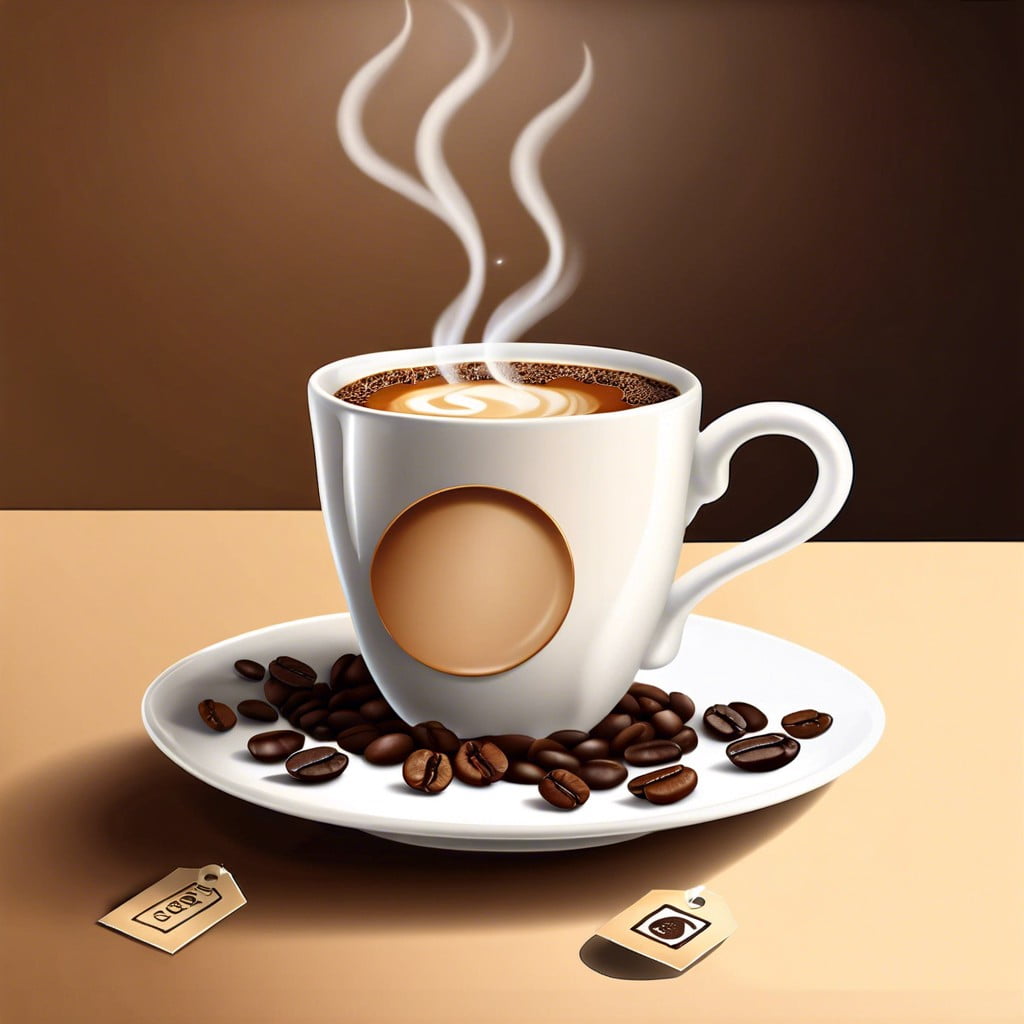Discover what factors influence the cost of a cup of coffee and how prices can vary.
Factors Affecting Coffee Prices

Several elements influence the cost of your cup of Joe. Coffee bean type and quality significantly dictate the price; premium Arabica beans generally carry a higher price tag than Robusta due to their smooth flavor and lower caffeine content. Origin also plays a critical role—beans sourced from renowned regions like Ethiopia or Colombia are often more expensive due to their distinct flavor profiles.
Transportation and market conditions are also crucial factors. Beans must be shipped from tropical climates, adding a significant cost layer. Furthermore, volatile market prices for coffee can swing dramatically due to changes in supply and demand, influenced by factors such as weather conditions affecting crop yields.
Lastly, local economic conditions, including taxes, labor costs, and rent, vary widely between locations, affecting how much you pay at your local coffee spot. This results in noticeable price discrepancies across different regions and countries.
Price Ranges for Different Coffee Brewing Methods
Espresso shots usually range from $2 to $3 due to the specialized machinery and finely ground beans required. Drip coffee, common in households and diners, can be one of the most cost-effective methods, typically priced between $1 to $2 per cup. Pourover options, favored for their cleaner, crisper flavors, tend to be slightly pricier at cafes, costing around $3 to $4.
French Press, known for its rich texture, usually sets you back about $2 to $4, depending on the quality of the beans used. Cold brew coffee, requiring extensive steeping time and more grounds, is normally priced higher, around $3 to $5.
Nespresso and Keurig, popular for their convenience, involve costs for individual pods, averaging between $0.70 and $1.50 per cup, significantly cheaper than many café-brewed options yet more expensive than traditional home-brewed methods.
Espresso
Espresso might seem like just a quick caffeine hit, but there’s more to consider when it comes to its cost. Typically, an espresso shot requires around 7-9 grams of coffee beans. This concentrated burst of coffee bliss can vary significantly in price depending on where you buy it and the quality of beans used.
At home, creating espresso can be reasonably cost-effective, especially if you own a machine. Per shot, costs could range from $0.35 to $0.70, largely hinging on the beans’ brand and type.
In a café, however, expect prices to start around $2 and climb upwards, influenced by the ambience of the spot and its location. Major coffee chains often use pricing strategies that reflect their global brand and service experience, which could also affect how much you pay.
Remember, the compact size of a single espresso doesn’t necessarily mirror its punch or its price. The energy kick and deep flavor profile encapsulated in these small servings do justify the expense for many. Keep this in perspective when savoring your next shot or setting up your home espresso station.
Traditional Drip
A cup of traditional drip coffee typically sits on the more affordable side of the spectrum. It’s the day-starter for millions, thanks to its straightforward brewing technique and accessibility. Most cafes offer it for around $1 to $3, depending on location and the quality of beans used.
When brewing at home, the cost drops significantly. A 12-ounce bag of good-quality coffee costing about $15 can yield approximately 30 cups. That boils down to mere cents per cup.
The simplicity of the drip method combined with the lower cost per cup makes it a favored choice for daily coffee drinkers. It’s all about ground coffee meeting hot water, trickling down through a filter, resulting in that beloved brew. This method’s efficiency is its charm, providing a consistent taste that’s efficiently produced, cup after cup.
Pourover
Pourover coffee brewing involves a precise pour of hot water over coffee grounds contained in a filter. The water drains through the coffee and filter into a carafe or mug. This method is beloved for its ability to highlight intricate flavors and aromas that other brewing methods might mask.
The cost of making pourover coffee at home can vary widely, primarily depending on the coffee beans and equipment used. Generally, a quality pourover setup with a dripper, kettle, and filters might have an initial setup cost of $30 to $100, but the per-cup cost remains low, especially if you buy beans in bulk.
Cafes charge more, typically between $3 to $5 per cup, reflecting the skill needed for the perfect pourover and the ambiance of the café. Despite the higher price, fans appreciate the superior flavor profile that pourover offers.
In essence, pourover brewing satisfies those who are keen on delving deeper into the coffee experience, extracting every possible flavor from their beloved beans.